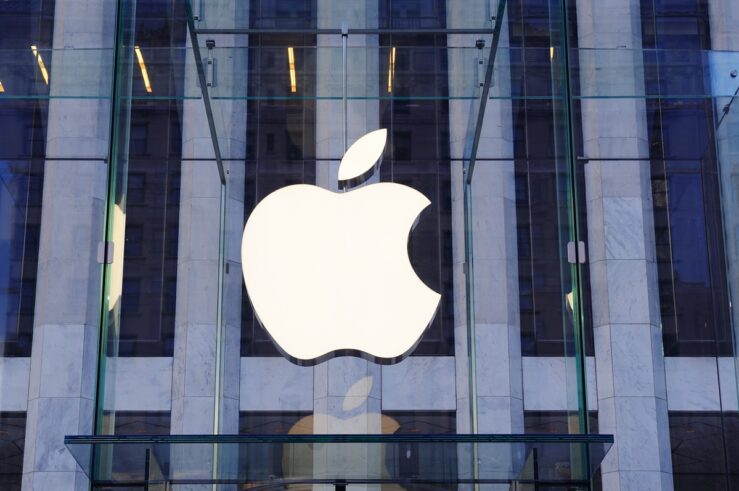Showing results for: “digital markets act”
Balancing competition and innovation in the drug industry: An evaluation of current proposals.
Last week the Senate Judiciary Committee held a hearing, Intellectual Property and the Price of Prescription Drugs: Balancing Innovation and Competition, that explored whether changes to the pharmaceutical patent process could help lower drug prices. The committee’s goal was to evaluate various legislative proposals that might facilitate the entry of cheaper generic drugs, while also ... Balancing competition and innovation in the drug industry: An evaluation of current proposals.
It’s Not So Simple Who Owns “Your” Data
What kind of regulation? Treating digital platforms like public utilities won’t work, Petit argues, because the product is multidimensional and competition takes place on multiple margins (the larger theme of the book): “there is a plausible chance that increased competition in digital markets will lead to a race to the bottom, in which price competition ... It’s Not So Simple Who Owns “Your” Data
Closing the US securities markets
The WSJ reports that the SEC is considering raising the 500-shareholder limit on the number of holders of a class of securities a company can have before having to register that security with the Commission under Section 12(g) of the 1934 Act. The SEC reportedly is also considering relaxing the “general solicitation” restriction on private ... Closing the US securities markets
Targeting Federal Agency Regulatory Overreach through the Congressional Review Act (CRA)
On February 22, 2017, an all-star panel at the Heritage Foundation discussed “Reawakening the Congressional Review Act” – a statute which gives Congress sixty legislative days to disapprove a proposed federal rule (subject to presidential veto), under an expedited review process not subject to Senate filibuster. Until very recently, the CRA was believed to apply ... Targeting Federal Agency Regulatory Overreach through the Congressional Review Act (CRA)
Reports of the press’s death are greatly … understated
More than a century of bad news Bill Gates recently tweeted the image below, commenting that he is “always amazed by the disconnect between what we see in the news and the reality of the world around us.” Of course, this chart and Gates’s observation are nothing new – there has long been an accuracy ... Reports of the press’s death are greatly … understated
US v. Apple Lawsuit Has Big Implications for Competition and Innovation
The lawsuit filed yesterday by the U.S. Justice Department (DOJ) against Apple for monopolization of the U.S. smartphone market (joined by 15 states and the District of Columbia) has big implications for American competition and innovation. At the heart of the complaint is the DOJ’s assertion that: [Apple’s] anticompetitive acts include, but are not limited ... US v. Apple Lawsuit Has Big Implications for Competition and Innovation
5 Thoughts on the Senate’s Proposed Platform Self-Preferencing Ban
A bipartisan group of senators unveiled legislation today that would dramatically curtail the ability of online platforms to “self-preference” their own services—for example, when Apple pre-installs its own Weather or Podcasts apps on the iPhone, giving it an advantage that independent apps don’t have. The measure accompanies a House bill that included similar provisions, with ... 5 Thoughts on the Senate’s Proposed Platform Self-Preferencing Ban
Judge Sullivan and the UPP: Much Ado About Nothing or Articulating the Real Problem with the New HMGs?
Much has been made of Judge Sullivan’s recent decision in City of New York v. Group Health Incorporated and its implications for the UPP test and market definition in merger cases under Section 7 of the Clayton Act. Given the 2010 Proposed Horizontal Merger Guidelines’ (2010 HMGs) shift toward diversion ratios and margins and away ... Judge Sullivan and the UPP: Much Ado About Nothing or Articulating the Real Problem with the New HMGs?
The FTC’s Cardinal Health Settlement is Bad Antitrust Medicine and Highlights the Need for Additional Antitrust Guidance
On April 17, the Federal Trade Commission (FTC) voted three-to-two to enter into a consent agreement In the Matter of Cardinal Health, Inc., requiring Cardinal Health to disgorge funds as part of the settlement in this monopolization case. As ably explained by dissenting Commissioners Josh Wright and Maureen Ohlhausen, the U.S. Federal Trade Commission (FTC) ... The FTC’s Cardinal Health Settlement is Bad Antitrust Medicine and Highlights the Need for Additional Antitrust Guidance
Significant Impediment To Industry Innovation: A novel theory of harm in EU merger policy?
In Brussels, the talk of the town is that the European Commission (“Commission”) is casting a new eye on the old antitrust conjecture that prophesizes a negative relationship between industry concentration and innovation. This issue arises in the context of the review of several mega-mergers in the pharmaceutical and AgTech (i.e., seed genomics, biochemicals, “precision ... Significant Impediment To Industry Innovation: A novel theory of harm in EU merger policy?
A Supreme Court ruling against Aereo won’t spell the end of cloud computing
Interested observers on all sides of the contentious debate over Aereo have focused a great deal on the implications for cloud computing if the Supreme Court rules against Aereo. The Court hears oral argument next week, and the cloud computing issue is sure to make an appearance. Several parties that filed amicus briefs in the ... A Supreme Court ruling against Aereo won’t spell the end of cloud computing
A Bargaining Model v. Reality in FTC v. Qualcomm: A Reply to Kattan & Muris
Introduction In a recent article[1] Joe Kattan and Tim Muris (K&M) criticize our article[2] on the predictive power of bargaining models in antitrust, in which we used two recent applications to explore implications for uses of bargaining models in courts and antitrust agencies moving forward. Like other theoretical models used to predict competitive effects, complex bargaining models ... A Bargaining Model v. Reality in FTC v. Qualcomm: A Reply to Kattan & Muris






